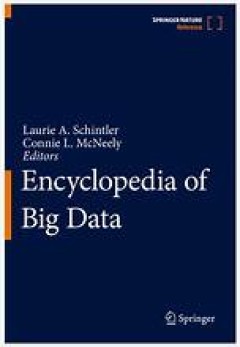Filter by

Teach truth to power :how to engage in education policy
"Garcia lays out tactics for researchers to fully engage in education policy by directly engaging with politicians -- at levels from local to national -- both before and after they are elected"--OCLC-licensed vendor bibliographic record.
- Edition
- -
- ISBN/ISSN
- 0262367602
- Collation
- 1 online resource
- Series Title
- -
- Call Number
- -

Economics of knowledge
The economics of knowledge is a rapidly emerging subdiscipline of economics that has never before been given the comprehensive and cohesive treatment found in this book. Dominique Foray analyzes the deep conceptual and structural transformation of our economic activities that has led to a gradual shift to knowledge-intensive activities. This transformation is the result of the collision of a lo…
- Edition
- -
- ISBN/ISSN
- 9780262272926
- Collation
- 1 online resource (xii, 275 pages) :illustrations
- Series Title
- -
- Call Number
- -

Knowledge management :classic and contemporary works
This book provides an introduction to the field of knowledge management. Taking a learning-centric rather than information-centric approach, it emphasizes the continuous acquisition and application of knowledge. The book is organized into three sections, each opening with a classic work from a leader in the field. The first section, Strategy, discusses the motivation for knowledge management an…
- Edition
- -
- ISBN/ISSN
- 9780262280174
- Collation
- 1 online resource (xiv, 435 pages) :illustrations
- Series Title
- -
- Call Number
- -

Social capital and information technology
A selection of revised papers from a workshop organized by the editors and held in Amsterdam on 21-22 May 2002, with the addition of some invited papers by social researchers.A multidisciplinary examination of the interplay between social capital-the value derived from social ties-and information technology.OCLC-licensed vendor bibliographic record.
- Edition
- -
- ISBN/ISSN
- 9780262256391
- Collation
- 1 online resource (ix, 416 pages) :illustrations
- Series Title
- -
- Call Number
- -

Sharing expertise :beyond knowledge management
An overview of expertise sharing, an approach to knowledge management that emphasizes the human components of knowledge work in addition to information storage and retrieval. The field of knowledge management focuses on how organizations can most effectively store, manage, retrieve, and enlarge their intellectual properties. The repository view of knowledge management emphasizes the gathering, …
- Edition
- -
- ISBN/ISSN
- 9780262266772
- Collation
- 1 online resource (xviii, 418 pages) :illustrations
- Series Title
- -
- Call Number
- -

Principles of Knowledge Auditing: Foundations for Knowledge Management Implem…
A comprehensive theoretical and practical guide to the operating principles of knowledge auditing, illustrated with numerous case studies. A knowledge audit provides an “at a glance” view of an organization's needs and opportunities. Its purpose is to improve an organization's effectiveness through a better understanding of the dynamics and levers of knowledge production, access, and use…
- Edition
- Ed. 1
- ISBN/ISSN
- 9780262373166
- Collation
- -
- Series Title
- -
- Call Number
- 658.403 LAM p

Creating Technology-Driven Entrepreneurship
This book proposes a comprehensive analysis of the existing schools of thought on technology-driven entrepreneurship to point out the process-based nature of this phenomenon. It explores whether entrepreneurship can be learned and examines the main processes that help influence entrepreneurial mind-sets. In the current economic landscape, technology-driven entrepreneurship is the driving for…
- Edition
- 1
- ISBN/ISSN
- 978-1-137-59156-2
- Collation
- Manajemen
- Series Title
- -
- Call Number
- 658

Entrepreneurial Universities
This book analyses the importance of the entrepreneurial university, specifically in relation to the creation of entrepreneurial ideas and attitudes in students and entrepreneurial initiatives in academic institutions. The aim of the editors and contributing authors is to provide the reader with a set of experiences illustrating the advantages of communicating and encouraging entrepreneurship a…
- Edition
- 1
- ISBN/ISSN
- 978-3-319-47949-1
- Collation
- Business Management
- Series Title
- -
- Call Number
- 650

Entrepreneurial Universities
- Edition
- 1
- ISBN/ISSN
- 978-3-319-47949-1
- Collation
- Manajemen
- Series Title
- -
- Call Number
- 650
- Edition
- 1
- ISBN/ISSN
- 978-3-319-47949-1
- Collation
- Manajemen
- Series Title
- -
- Call Number
- 650

Encyclopedia of Big Data
This encyclopedia will be an essential resource for our times, reflecting the fact that we currently are living in an expanding data-driven world. Technological advancements and other related trends are contributing to the production of an astoundingly large and exponentially increasing collection of data and information, referred to in popular vernacular as “Big Data.” Social media and c…
- Edition
- 1
- ISBN/ISSN
- 978-3-319-32010-6
- Collation
- Manajemen /echnology
- Series Title
- -
- Call Number
- 658
 Computer Science, Information & General Works
Computer Science, Information & General Works  Philosophy & Psychology
Philosophy & Psychology  Religion
Religion  Social Sciences
Social Sciences  Language
Language  Pure Science
Pure Science  Applied Sciences
Applied Sciences  Art & Recreation
Art & Recreation  Literature
Literature  History & Geography
History & Geography